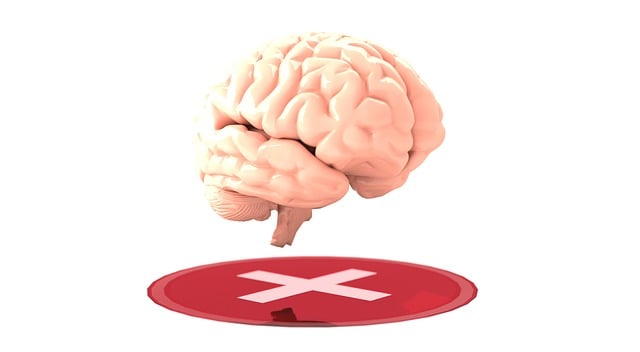In Lafayette's French-speaking community, mental health literacy is a growing priority. Tailored education programs are needed to overcome cultural and linguistic barriers to accessing services. Integrating mental health awareness through community initiatives and healthcare settings reduces stigma, encourages early intervention, and promotes effective coping strategies. An engaging curriculum that includes role-playing scenarios and case studies empowers individuals to seek help and fosters trust in therapists, especially when using Lafayette French Speaking Therapy techniques. Strategic planning, evaluation with innovative techniques like participant feedback forms in both languages, and tracking mental well-being improvements through standardized tools are crucial for successful programs catering to this diverse population.
Mental health education is a vital component of well-being, especially within diverse communities like French-speaking populations. This article explores the design of an inclusive program aimed at enhancing mental health literacy among francophones. We delve into strategies such as understanding cultural contexts, creating engaging curricula, and integrating effective therapy models, like Lafayette’s approach. By combining these elements, we aim to highlight implementation and evaluation methods that ensure optimal learning outcomes, fostering healthier French-speaking communities through comprehensive mental health education.
- Understanding Mental Health Literacy in French-Speaking Communities
- Designing an Engaging Curriculum for Effective Education
- Incorporating Lafayette's Approach to Therapy into the Program
- Implementation and Evaluation Strategies for Optimal Learning Outcomes
Understanding Mental Health Literacy in French-Speaking Communities

In French-speaking communities, like that of Lafayette, mental health literacy is a growing area of focus and importance. Understanding mental health involves recognizing signs and symptoms of common conditions such as depression, anxiety, and burnout—issues that affect individuals across all demographics but can be exacerbated by cultural and linguistic barriers. The unique challenges faced by French-speaking populations in accessing quality mental health services highlight the need for tailored education programs.
Integrating mental health literacy into community initiatives and healthcare settings is crucial to reducing the stigma surrounding mental illness, fostering early intervention, and promoting effective coping strategies. Programs designed with a focus on cultural sensitivity can empower individuals to seek help, support family members in their journey towards recovery, and equip healthcare providers with the necessary tools for compassionate, culturally competent care—including Lafayette French-speaking therapy practices. This holistic approach not only enhances mental health awareness but also contributes to significant improvements in burnout prevention strategies among healthcare providers who serve these communities.
Designing an Engaging Curriculum for Effective Education

Creating an engaging curriculum is paramount when designing a mental health education program, as it ensures active participation and deep learning. Incorporating interactive elements like role-playing scenarios, group discussions, and case studies allows students to apply theoretical knowledge in practical contexts. For instance, at Lafayette French Speaking Therapy, educators can design modules that simulate real-life therapy sessions, encouraging practitioners-in-training to navigate complex emotional landscapes and implement various intervention strategies.
This hands-on approach fosters emotional regulation skills, a key component of mental health education. By engaging with conflict resolution techniques and risk management planning, students learn to handle challenging situations effectively. Through dynamic curriculum design, the program prepares future therapists to offer compassionate and competent care, reflecting the holistic nature of mental wellness support.
Incorporating Lafayette's Approach to Therapy into the Program

Incorporating Lafayette’s Approach to Therapy into a mental health education program can significantly enhance its effectiveness and appeal, especially when tailored for diverse populations. This unique methodology, rooted in French-speaking therapy techniques, offers a holistic perspective that respects cultural nuances and individual experiences. By integrating Lafayette French Speaking Therapy, the program can cater to individuals who may feel more at ease sharing personal struggles in their native language, fostering trust and openness.
The approach emphasizes open dialogue, active listening, and conflict resolution techniques that are particularly valuable in community outreach programs. These skills enable participants to navigate sensitive conversations, manage interpersonal conflicts, and promote positive mental health within their communities. Furthermore, healthcare provider cultural competency training can be seamlessly woven into the curriculum, ensuring that educators themselves become adept at addressing the unique needs of diverse clientele, thereby creating a supportive and inclusive learning environment.
Implementation and Evaluation Strategies for Optimal Learning Outcomes

Implementing a mental health education program requires strategic planning and evaluation to ensure optimal learning outcomes for all participants, especially within diverse communities like Lafayette’s French-speaking population. One effective approach is to integrate Mind Over Matter Principles that cater to different cultural backgrounds, fostering inclusive learning environments. This can be achieved by incorporating culturally sensitive practices into the curriculum, ensuring therapists and educators are trained in understanding and addressing unique mental health challenges faced by French-speaking individuals within Lafayette.
Evaluation strategies should go beyond traditional methods. Using innovative techniques like participant feedback forms in both French and English, focus groups, and interviews allows for a deeper understanding of the program’s impact. Additionally, tracking improvements in mental well-being through standardized assessment tools tailored to diverse populations can provide concrete evidence of success. Such comprehensive evaluation ensures that Confidence Boosting initiatives are not only effective but also culturally adapted, catering to Lafayette’s French-speaking therapy needs.
Mental health education programs, tailored to meet the needs of French-speaking communities, are vital in fostering better mental well-being. By incorporating Lafayette’s therapeutic approach and designing engaging curricula, we can create impactful learning experiences. These strategies ensure that individuals gain essential mental health literacy, enabling them to navigate their emotional journeys effectively. Through proper implementation and evaluation, we can revolutionize mental healthcare access within these communities, promoting a healthier and more supportive environment. Integrating Lafayette French-speaking therapy into education paves the way for positive change and improved mental health outcomes.














